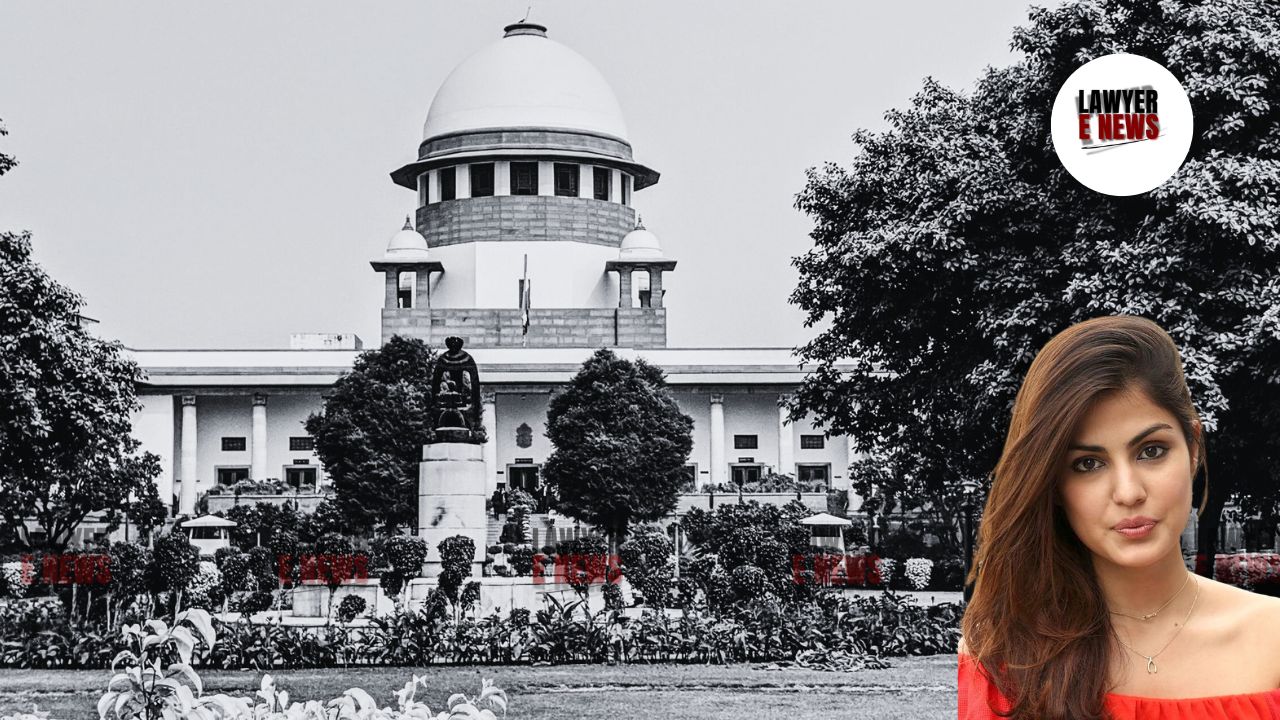-
by Admin
15 February 2026 5:35 AM



The Supreme Court today dismissed a petition filed by the Central Bureau of Investigation (CBI), the State of Maharashtra, and the Bureau of Immigration that challenged the Bombay High Court’s decision to quash Look-Out Circulars (LOCs) issued against actress Rhea Chakraborty, her brother Showik, and her father, retired Lt. Colonel Indrajit Chakraborty. These LOCs were issued during the investigation into the death of actor Sushant Singh Rajput.
A bench of Justices B.R. Gavai and K.V. Viswanathan was unequivocal in its disapproval of the CBI’s appeal, calling it "frivolous." Justice Gavai remarked that the petition seemed to be driven by the "high-profile" status of the accused rather than any legitimate grounds for enforcement of the LOCs.
“You are filing such a frivolous petition, only because one of the accused is a high-profile person... It will be with exemplary costs,” Justice Gavai cautioned the CBI counsel.
The bench also expressed skepticism over the rationale for issuing LOCs in such a case. Justice Viswanathan commented, "You issue LOC for all this!" indicating surprise that travel restrictions were imposed without substantial justification.
The LOCs against Rhea Chakraborty and her family were issued in August 2020, soon after an FIR was filed by Sushant Singh Rajput’s family in Patna, alleging involvement in his death. The FIR led to the transfer of the investigation to the CBI, and the LOCs were intended to restrict the Chakrabortys from traveling abroad during the investigation.
However, in May 2023, the Bombay High Court quashed these LOCs, noting several issues:
The CBI had failed to provide specific reasons for the issuance of the LOCs, a requirement under the Consolidated Guidelines.
The LOCs were not periodically reviewed, as mandated by law.
The Chakrabortys had consistently cooperated with the investigation and were not considered flight risks, given their deep roots in Indian society.
The Bombay High Court further emphasized the importance of safeguarding the fundamental right to travel, stating, “The right to travel is a fundamental right and cannot be curtailed except according to due procedure established by law.”
While the CBI requested a stay on the High Court's order, the Bombay High Court refused. It did, however, leave the door open for authorities to issue fresh LOCs if necessary in the future.
The Supreme Court bench highlighted that LOCs should not be issued arbitrarily, especially in the absence of concrete reasons. It agreed with the Bombay High Court’s assessment that the CBI’s justification for issuing LOCs in this case was inadequate.
"Both persons have deep roots in society," Justice Gavai noted, questioning the rationale behind treating the Chakrabortys as flight risks.
The bench’s remarks underscore a broader concern about the misuse of LOCs, particularly in cases that attract intense media attention, and emphasize that procedural fairness must not be compromised.
The Supreme Court’s decision reaffirms the judiciary’s role in protecting the rights of individuals against arbitrary travel restrictions. By dismissing the CBI’s petition as “frivolous,” the Court sends a clear message that high-profile status alone cannot justify restrictive measures such as LOCs without legitimate cause.
This ruling also serves as a cautionary note for investigative agencies, reminding them that LOCs should only be issued in cases where there is substantial evidence suggesting the risk of absconding. Furthermore, it reaffirms that fundamental rights, including the right to travel, must be respected and that procedural safeguards are essential even in high-profile investigations.
The Addl. Superintendent of Police and Anr. vs. Showik Indrajit Chakraborty
Diary No.: 43258-2024
